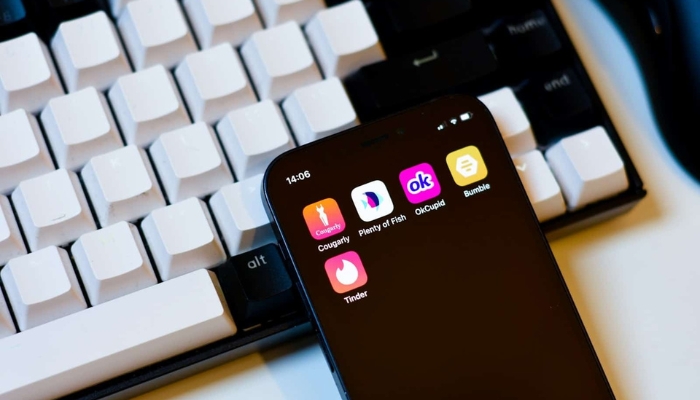
Last updated on April 4th, 2024 at 09:28 am
Platforms are accused of incentivizing addictive use by gamifying user attention and emotional investment
On Valentine’s Day, six users of dating apps filed a proposed class-action lawsuit against Tinder, Hinge, and other Match dating apps. They accused these platforms of using addictive, game-like features to encourage excessive use, leading to negative experiences like being swiped left, ghosted, breadcrumbed, or benched.
According to the lawsuit, filed in federal court in the Northern District of California, Match’s apps employ features that manipulate dopamine levels, turning users into “gamblers locked in a search for psychological rewards.” This approach allegedly fuels dating app addiction, driving users to purchase expensive subscriptions and use the apps perpetually.
Match dismissed the lawsuit as “ridiculous,” but experts in online dating noted that it reflected a larger backlash against the way apps were gamifying human interactions for profit, often leaving users feeling manipulated.
Mia Levitin, author of The Future of Seduction, likened big tech to big tobacco, suggesting that smartphones are as addictive as cigarettes. Levitin pointed out that addiction may have been ingrained in dating apps from the start. Jonathan Badeen, the co-founder of Tinder who created the swiping feature, reportedly drew inspiration from BF Skinner’s experiments with pigeons, where hungry pigeons were conditioned to believe that randomly delivered food in a tray was a result of their pecking.
Dating apps are designed to hijack the brain’s reward system, prioritizing the immediate dopamine rush over long-term satisfaction. This design encourages continuous engagement, similar to the quick gratification of junk food instead of a wholesome meal,” Levitin explained.
The gamification is evident in Tinder’s card-style interface, resembling a deck of cards. Cultural anthropologist Natasha Dow Schüll, author of Addiction by Design, has compared dating apps to slot machines.
Determining whether dating apps discourage long-term romantic connections is challenging. One study suggested that couples who meet online might have slightly less satisfying and stable marriages compared to those who meet offline, but establishing causation is difficult.
According to Natasha McKeever, a lecturer at Leeds University specializing in love and sex, dating apps seem to “encourage bad behaviors – ghosting, breadcrumbing, backburner relationships.” This could be because having a dating app on hand might create a sense that “a better partner could always be just one swipe away.”
Lee MacKinnon, a lecturer at the London College of Communication completing a PhD on the gamification of dating apps, noted that dating apps influence and alter behavior using techniques from behavioral science.
“People feel deeply deceived when they’re led to believe that these platforms are prioritizing their interests, when in reality, they are serving the agendas of digital corporations. We have essentially become the product, with our personal lives, including our romantic relationships and most intimate details, being commodified,” she stated.
While dating apps theoretically offer a broader range of potential partners, they also “reproduce privilege,” MacKinnon noted. They do this by reinforcing idealized preferences for specific ethnicities, age ranges, and body types. She highlighted Match.com’s use of the Elo algorithm, originally designed to rank players in competitive games, as an example.
She noted that the concept of romantic love in Western culture has always been gamified, evident in the use of competitive metaphors like “the chase” and vying for attention among other suitors to win someone’s affection, with women historically portrayed as the ultimate prize.
However, what is truly novel is how dating apps have made romantic opportunities available 24/7. A recent survey indicated that millennials spend an average of 10 hours per week on dating apps. Luke Brunning, a philosophy lecturer at the University of Leeds who specializes in the ethics of online dating, mentioned that the endless profiles on these apps resemble the compulsive behavior of endlessly scrolling through social media feeds, which can have a similarly negative impact on mental health.
Brunning suggested that platforms could implement improvements such as greater transparency regarding their matching algorithms. They could also educate users about the pitfalls of online dating, discourage ghosting and excessive swiping by temporarily suspending users’ access to the app, and provide users with feedback on their behavior to reveal any unconscious biases.
He noted that while the plaintiffs in the lawsuit may be correct in asserting that dating apps are capitalizing on users’ attention and emotional investment, this practice is not exclusive to dating apps.
“I suspect the arguments presented in this lawsuit might struggle to find support in court. In a sense, the plaintiffs have highlighted a systemic issue within the dating app ecosystem.”
A spokesperson for Match Group stated, “This lawsuit is without merit and completely unfounded. Our business model does not rely on advertising or engagement metrics. We actively work to facilitate real-life dates and encourage users to move beyond our apps. Any claims to the contrary misunderstand the purpose and goals of our industry as a whole.”




